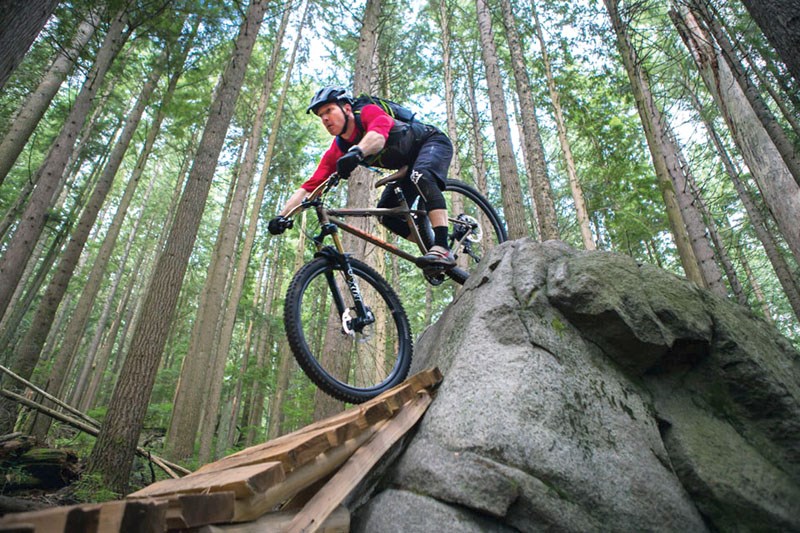In the summer of 2015, a mountain biker needed to have his spleen removed after taking a spill on a remote part of Mount Seymour.
With the popularity of downhill biking on the upswing, Vancouver Coastal Health is reminding cyclists to slow their roll this summer, promoting the issue through their Shred Safe campaign.
“Check the trail, check the bike and slow down,” said Dr. John Carsley, medical health officer for Vancouver.
While a majority of last season’s approximately 100 mountain biking injuries happened in Whistler, North Vancouver’s collection of criss-crossing trails were the site of the second most injuries, with about 13 crashes resulting in surgery.
Approximately 89 per cent of mountain bikers hospitalized last year were male.
Carsley said drugs and alcohol may have been a factor in some falls.
“It’s like any sport. You don’t want to be either drunk or high when you do it,” he said.
Besides avoiding a crash diet, Carsley recommends monitoring trail conditions and resisting the urge to push past the point of fatigue.
“It’s like skiing,” Carsley said. “I’ll just get this one last run in. Well, maybe you shouldn’t.”
Unfounded confidence can also cause injuries, noted North Shore Mountain Bike Association administrator Christine Tetrault.
Some riders head downhill believing they possess “an elevated skill level that they don’t actually have,” she said.
Overall, the rise in injuries is a byproduct of mountain biking’s burgeoning popularity, according to Tetrault.
NSMBA’s membership has more than quadrupled in two years, Tetrault said, adding the group likely accounts for fewer than 10 per cent of all riders.
Tetrault touts “riding with a buddy,” particularly a buddy with first-aid training.
“Whether it’s for a hike or a bike or a run, going with somebody in case anything ever happens is always a good idea,” she said.
Most riders are safety conscious, according to Tetrault.
“I’ve never seen anybody on the trails not wearing a helmet and not wearing protective kneepads,” she said.
Carsley differed, calling on mountain bike riders to take greater precautions.
“We think that there could be greater investment in protective gear, because we see a lot of bikers who are not wearing protective gear beyond the helmet.”
Cyclists of all stripes and speeds can benefit from extra tutelage, according to Tetrault.
North Vancouver rental and tour operator Endless Biking is offering a two-hour lesson as part of the Vancouver Coastal Health campaign.
Endless Biking tries to keep cyclists away from terrain that leaves them “focused on trying to survive,” noted the shop’s general manager Chris Simm.
Instead, the courses help cyclists find optimum body position and a greater understanding of the mechanics and balance of the bike, according to Simm.



